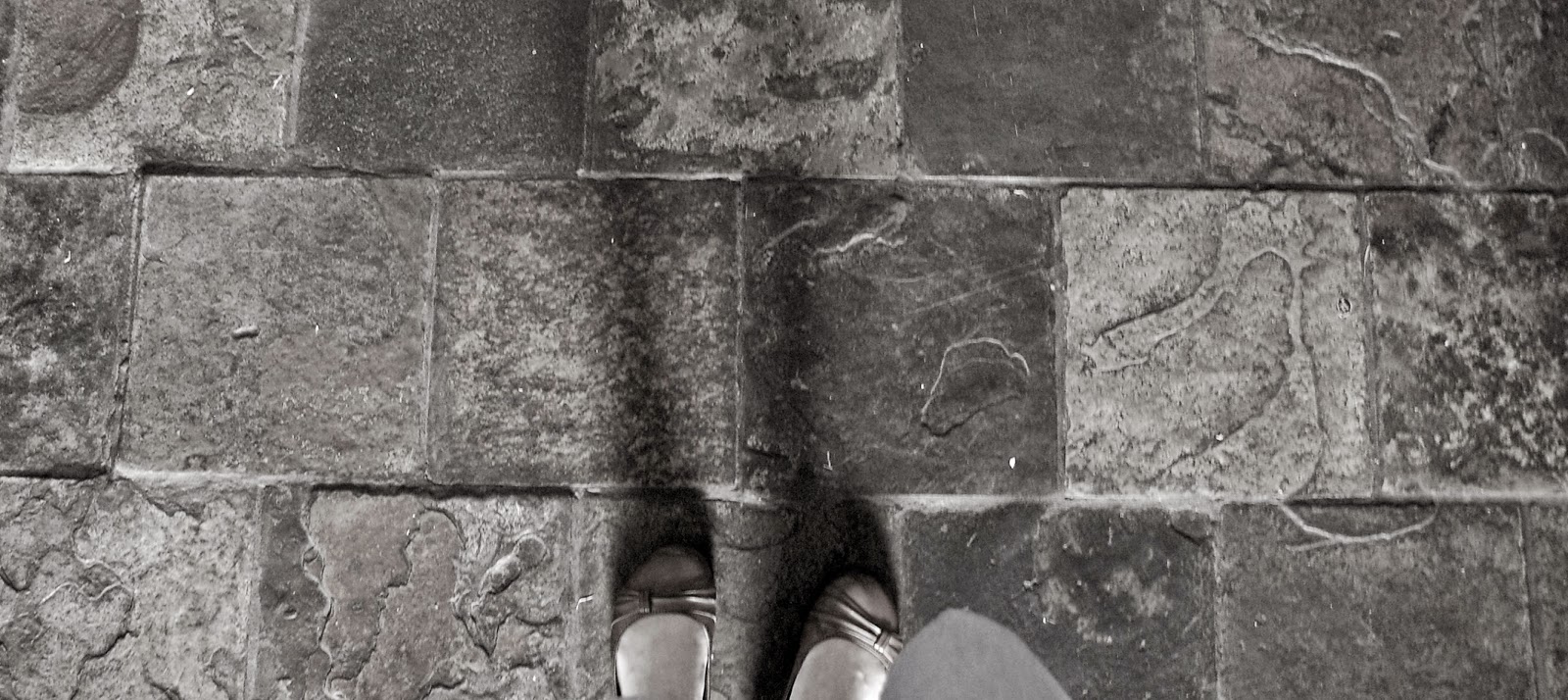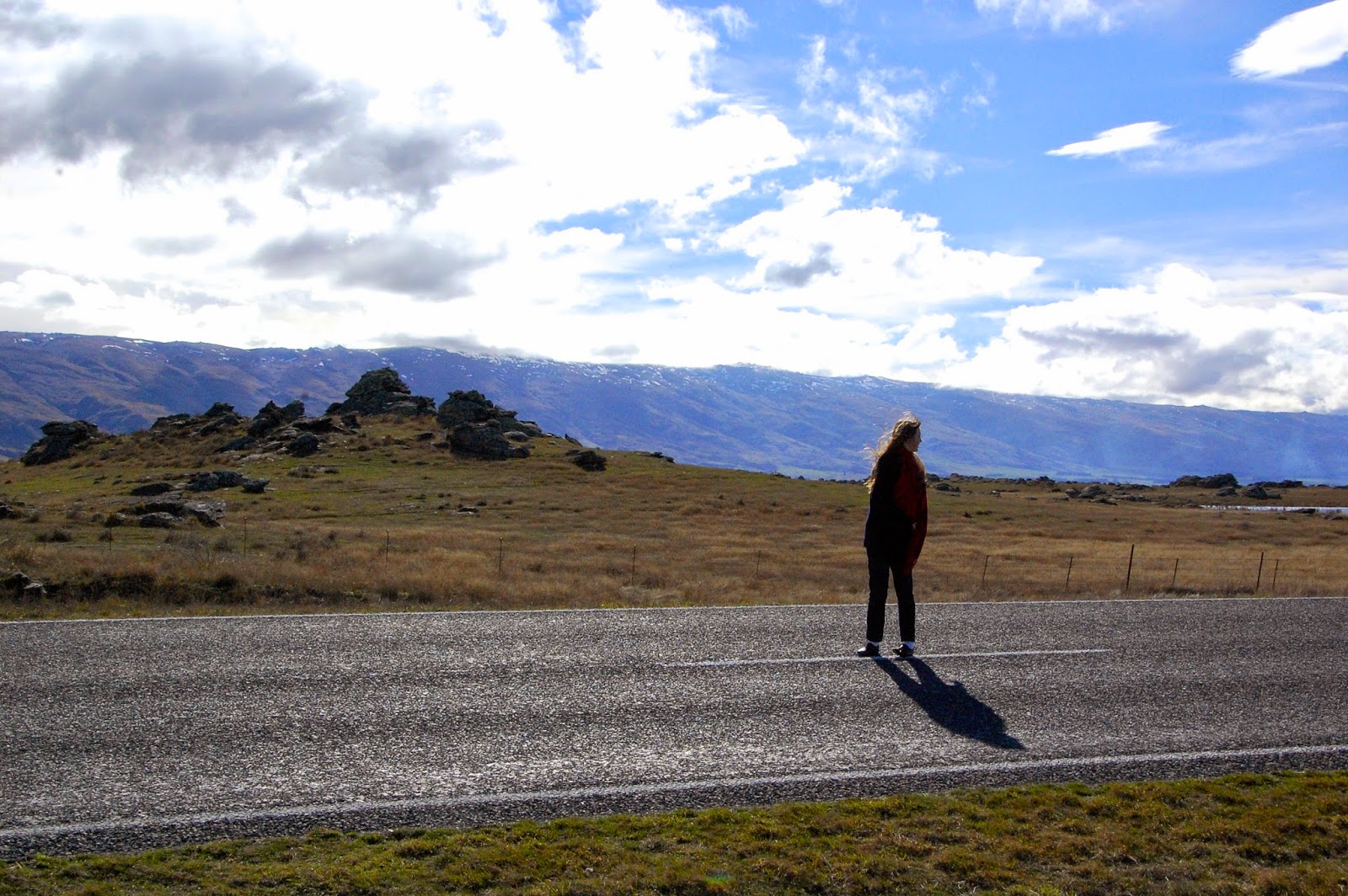“What do you think, Peeta?” I finally ask him.
“I think… you still have no idea. The effect you can have.”
–Katniss and Peeta, in Mockingjay by Suzanne Collins
It was my last night in New Zealand before I left for Christmas break in Hawaii. The stars already twinkled as my two friends and I neared the end of our long drive from Tauranga to Auckland. I commented on a Mockingjay: Part One poster plastered on a bus stop as we sped past. I want to see that! they replied, and a thrill of hope went through me. “You do, too?!” I exclaimed. “I didn’t want to bring it up because I didn’t know if you liked it…” and in between squeals of excitement we made plans from my iPhone to go to the 9PM showing.
Turns out I was the only one in the group that had read all three books. I had done so a year ago after seeing Catching Fire, the second installment of the series, and wanted to know what happened next. I did a similar thing with The Hobbit, too, although I had read that in elementary school (I mean, come on, do you have to always end in cliffhangers?!). As a book snob and a writer, I’m entitled to rant how the books are better than the movies, whether it’s Narnia stories, Pride and Prejudice, or even The Cat in the Hat. But ever since I read The Lord of the Rings because I wasn’t allowed to see the movies in theaters, I’ve read books in partnership with movies. Both have their downfalls and their merits, so in reading and watching I always feel like I’m getting the best of both worlds.
Yet, back to The Hunger Games. In a brief rundown, it’s classic dystopian fiction (that is, not-Utopian, usually a crumbling political society). Set many years in the future, all other nations have disintegrated and become the 12 Districts. The Capitol is a form of Ancient Rome– its people dressed in glamour and drinking draughts to make them throw up at feasts, just so they can keep on gorging themselves throughout the night. The rest of the districts live in abject poverty, those in 12 are starving, and that’s where Katniss Everdeen is from. To keep the districts from revolting, they are thrown into fear with the annual Hunger Games. One boy and one girl 12-18 are chosen in a death-lottery to represent their district, to kill Gladiator-style in an arena telecasted for all to see, whether they like it or not.
This storyline alone is why I avoided the first movie like the plague, denounced anyone who watched it, and doubted Jesus would want anything to do with it.
Then almost by accident I watched the first movie, a year or so later after it first came out. I realized that the main characters weren’t agreeing with that society– they were writhing and struggling to get rid of it. Suzanne Collins gained inspiration from the gladiatorial games of Ancient Rome, and if you have seen Gladiator, just imagine “Are you not entertained?” hundreds of years in the future and you pretty much have one of the main themes of The Hunger Games series: we should not have violence for entertainment’s sake. And so the rest of the series is about overthrowing the dystopian power that enforces that violence on the innocents.
Yet the irony is, when a book becomes so popular a movie, the death inherent to this End-Times story– becomes entertainment for us.
And that is a dangerously gray area to step into.
About two weeks after I had seen Mockingjay in theaters, I was back in Hawaii, assisting in a first and second grade classroom. “I want to go see Mockingjay,” a young boy with an older sister proudly exclaimed. I could see the shock on a few other children’s faces, ones with stricter parents or no teenage siblings. “My mom doesn’t let me watch that!”– and I was trying to think about what to say as they bantered, proud or shocked, back and forth. Finally, though it was probably a little over a minute, the main teacher stepped in firmly, saying they were not to talk about it, because some were allowed to watch those movies, and some weren’t. The instigator opened his mouth to say something– then closed it when he saw his teacher meant it.
Then I remembered the dark moment in the theater with my two friends– me, the only one out of us who knew what was about to happen. And that’s the difference– with a book? You have time to mentally and emotionally process things. Movies– they happen to you and you cannot stop it, unless you walk out. And the only thing stopping me from completely freaking out in that moment is that I had read the books– I knew the end– I knew that even though the story was growing darker and darker, it was going to get better, too (even though you have to wait another year for Mockingjay: Part 2 to know it).
Would I want to subject a child, or a young teen– well, even myself, to that?
Most scream: NO WAY! and I would agree with you. The Enemy– the one who wants our souls– can gain footholds when we give our brains to murder mysteries, violent stories, in short, death. The thief comes only to steal and kill and destroy (John 10:10, ESV). I had to say no to watching a TV show recently (even though I had a big crush on the main character), because last time I ignored my mom’s warnings, I regretted it. Still today, dreams come back now and again, with haunts of places and scenes from a show I watched when I was fifteen– even though that’s above PG-13 warnings, right? You could say that it doesn’t affect you like it does me, a Myers-Brigg personality test result of extraverted-feeling, but when that comes out of my own mouth about The Hunger Games, then I do need to do a double check. Even if it doesn’t “affect me”, do I want to continually subject myself to that? That’s my wrestle. (P.S. I have a no-tolerance thing on horror or zombie movies, and rarely watch army movies).
Yet step deeper into the grey area with me, for a moment.
As I read the trilogy on Kindle within two weeks, I also found Christians who took that no-violence policy and absolutely thrashed The Hunger Games with it. Wouldn’t even give it a thought. Things were black and white and that was it. And me… longing for the romance and adventure that is inherent to those stories, felt pretty crushed. For instance, imagine a thirteen-year-old girl, complete fan of The Hunger Games, becoming a Christian, and her youth group leader tells her it’s downright evil. Her sensitive heart– who believed that love looked like Katniss volunteering for Prim, who believed that love was sacrifice as seen constantly with Gale and Peeta– could be crushed, too.
And what makes me frustrated? Our story as found in The Hunger Games trilogy is completely dismissed when we focus on the death of its story, instead of its life.
Because I believe high school girls in that movie theater were not ultimately thirsting for blood. Instead, we were all starving for a hero, straining for some hope despite our cracked political system, hoping that we too have a part to play in this grand scheme to take down the enemy’s insidious rule. Whether fans ever get past analyzing how well the movie interpreted the book, or how hot Liam Hemsworth is– they still feel its deeper themes, and in the quiet of the early morning, they may admit to themselves how much they want a hero. Because they are admitting it, in slurping up dystopian fiction and purchasing endless movie tickets– they are revealing their heart so openly by showing us what stories they love.
In these grey areas, as individuals we need to look at stories one at a time, not construct black-and-white rules for everything. As my mom says, recognize the impact a movie has on you. Did it fill you with a disgruntled unrest? Did it give you unhealthy fear? Did it cause you to have thoughtful consideration of society? Lead you closer to knowing Jesus? Then remember you have the dignity of a choice, and make your decision.
If you haven’t seen it, you don’t have to. There are books and movies better worth your time, and really, I don’t advise it for children or teens– especially when death or threat of suicide are sandwiched between chapters. But if you have read or watched it, or know someone who has? Look for the Biblical themes, look for Jesus, for who He is– because despite the Enemy’s holds, God has placed eternity in our hearts and it bursts forth in the most unlikely of places. Do not be so quick to dismiss what He is so bravely trying to communicate to us through Suzanne Collins or her millions of fans across the world.
The thief comes only to steal and kill and destroy. I came that they may have life and have it abundantly. (John 10:10, ESV)
In the end, people don’t want facts, they want a narrative. They don’t want the rationality of following Jesus, but instead the personality of Jesus. He’s exploding with life. He’s fiercely loyal. He’s one that sacrificed all to be with us, to keep us safe.
That can only be expressed in all its fullness in a story.
A story is not a private affair
Think of your life-book on an arm-chair
It’s made to be read, and it’s made to be sung,
You’re made to be love on earth til it’s done
What are you doing, way over there?
Why are you thinking you’re too worse for wear?
You were made for greatness, my honey-sweet one,
You were made for a story and it’s not done.
My story is waiting for someone to join,
My story is coming,
My story is yours.
Although the world wrestles to have its effect on us, often winning its cruel game?
I agree with Peeta– we have no idea the effect we can have.
But I’m starting to.
Photo Credit: Mockingjay screenshot on Flixist; Catching Fire trailer screenshot; Lewis House floor 2013; me and mountains by Amber McKenzie, 2013.






